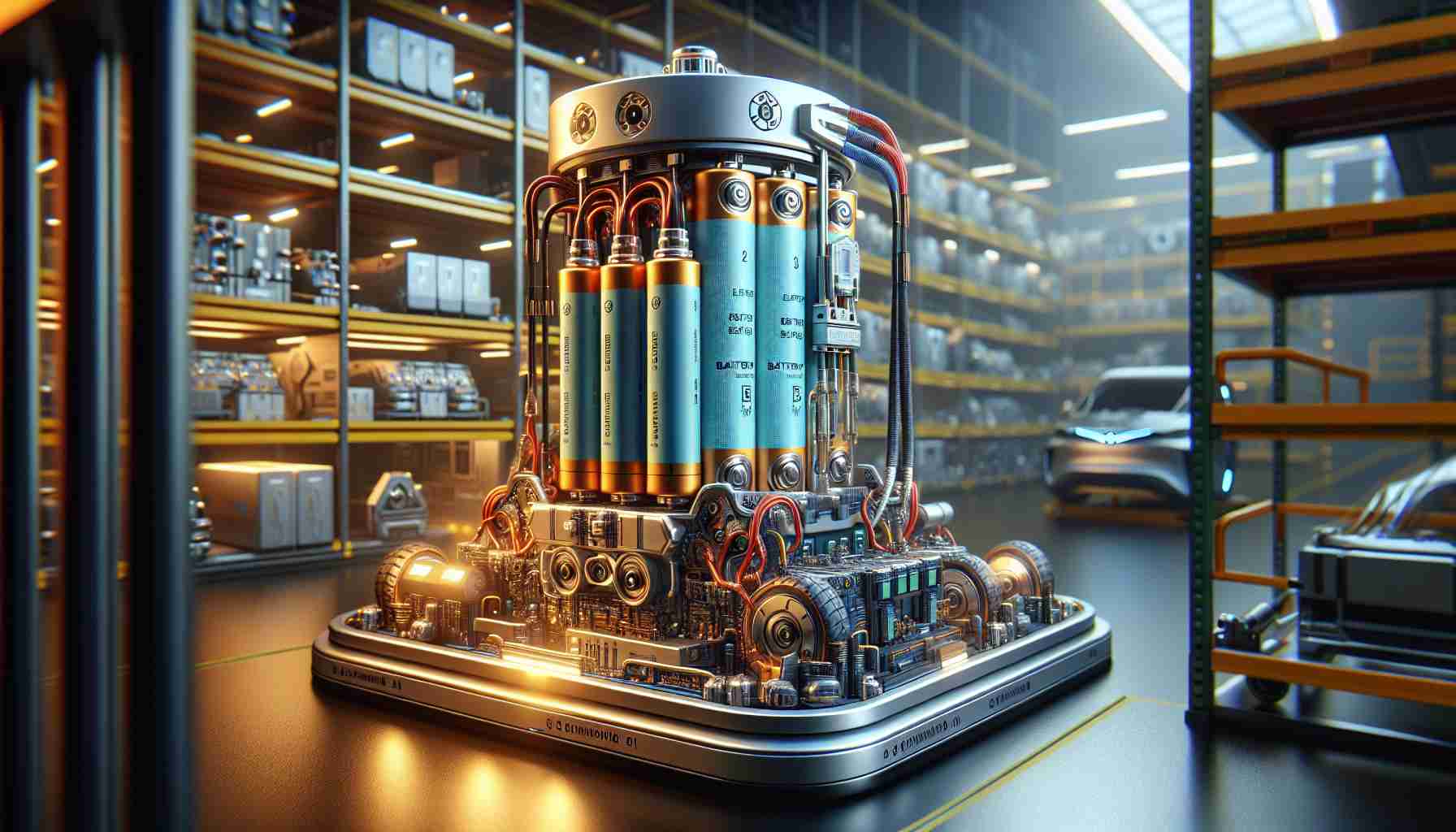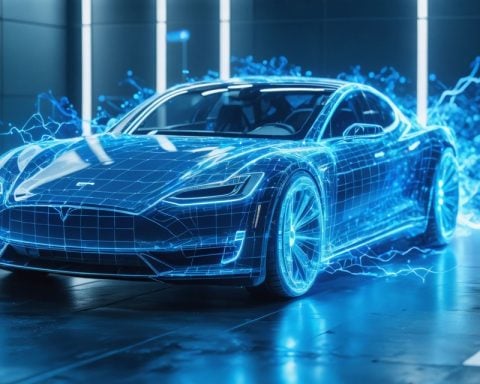Ilika Hits Major Milestone in Battery Development!
Ilika, a global leader in solid-state battery technology, has successfully reached a significant milestone in its development of Goliath batteries for electric vehicles. The company has announced that it has successfully tested its 10Ah cells, marking essential progress on its development roadmap.
Building upon the momentum from previous safety data successes in October 2024, Ilika’s journey continues towards the D7 design freeze, expected in the first quarter of 2025. This stage will be critical as it will lead to the release of upgraded 10Ah prototype cells, known as P1.5 prototypes. These new prototypes aim to satisfy automotive manufacturers’ demands for proof of increased capabilities compared to the earlier 2Ah prototypes introduced in July 2024.
The D7 design freeze paves the way for subsequent advancements toward a D8 design freeze, anticipated also in early 2025. By the end of 2025, Ilika targets achieving its Minimum Viable Product stage with their 50Ah P2 prototypes, an output poised to open new revenue-generating opportunities through licensing.
Further enhancing the excitement, Balance Batteries, a UK-based company, is analyzing a Goliath-based battery pack that shows promising results. Initial findings suggest a substantial weight reduction of up to 100 kg compared to conventional SUV lithium-ion batteries, potentially increasing driving range while decreasing costs.
Ilika’s CEO, Graeme Purdy, highlighted the importance of meeting their D6 milestone on schedule, reinforcing their commitment to achieving a market-ready product that surpasses customer expectations. The company continues to collaborate with manufacturing partners to ensure successful commercialization and further solidify its leader status in the solid-state battery sector.
The Future of Transport Takes Charge: Breaking Barriers in Solid-State Battery Tech
Revolutionizing the Battery Landscape: Unseen Waves of Change
The breakthrough progress of Ilika in solid-state battery technology signifies a pivotal moment in the ever-evolving narrative of energy storage. Yet, this advancement only scratches the surface of what lies beneath in terms of potential impact on humanity and technological progression. Beyond energy efficiency, these innovations stir discourse on the broader implications for society and industrial development.
The Unseen Impacts and Innovations
Ilika’s advancements herald a shift towards a new era of energy utilization. Solid-state batteries are poised to be game-changers in various fields, ranging from automotive to electronics. The development of lighter batteries, as demonstrated by Balance Batteries’ reduction in weight, represents not only increased vehicular efficiency but also opens doors to advancements in fields where weight is a crucial factor, such as aerospace and medical devices.
Potential for Miniaturization: Solid-state technology allows for smaller, more efficient energy storage; imagine the capabilities in portable consumer electronics or remote sensors. Devices could become sleeker and more efficient, expanding the possibilities for wearable technology and ‘smart’ devices that perform more sophisticated tasks than their predecessors.
Longevity and Stability: Without the liquid electrolyte found in traditional batteries, the risk of leaking or combustion diminishes significantly, suggesting profound implications for safety, particularly in the volatile environs of space exploration or deep-sea endeavors.
Fact or Fiction: The Controversial Footprints
While the promise is great, so too are the controversies that trail it. There are significant debates around the environmental footprint of solid-state batteries, as the materials used can be sourced irresponsibly or involve intensive mining operations. The sustainability dilemma questions whether the benefits of increased efficiency are outweighed by potential ecological harm.
Ethical manufacturing: The sourcing of lithium, a primary component, often involves complex supply chains that can contribute to environmental degradation and human rights concerns. Are the benefits of energy advances worth the cost if they come at a serious human or environmental cost?
Advantages: Cutting-Edge Competency
– Increased Efficiency: Capable of storing more energy and charging faster than conventional lithium-ion batteries.
– Eco-Friendly: Potentially reduced carbon emissions due to higher efficiency and longer life spans.
– Enhanced Safety: Lower risk of fire and chemical leaks.
Disadvantages: The Roadblocks Ahead
– Production Costs: High costs associated with new manufacturing techniques and materials.
– Resource Intensive: Ethical and sustainable sourcing remains a challenge.
– Infrastructure: Significant investments in R&D and production facilities are necessary.
What Lies Ahead?
The pivotal question remains not just whether solid-state batteries will overtake existing technologies, but how they will integrate into and transform our global systems. What will it take to overcome their current limitations, and what compromises are decision-makers and consumers willing to make to realize their widespread adoption?
Ilika’s milestones signal optimism, yet with great power comes the great responsibility of ensuring ethical advancements. As solid-state batteries edge closer to market readiness, the focus shifts to how industries and societies can adapt. Can solid-state innovation lead to a greener, more technologically interconnected planet, or will it reveal new challenges we have yet to consider?
For further exploration of new tech developments: TechCrunch and The Verge.







